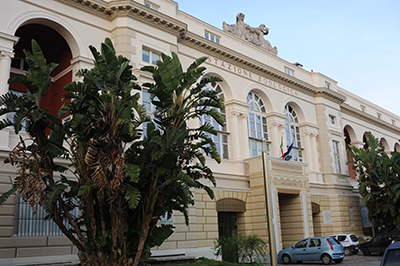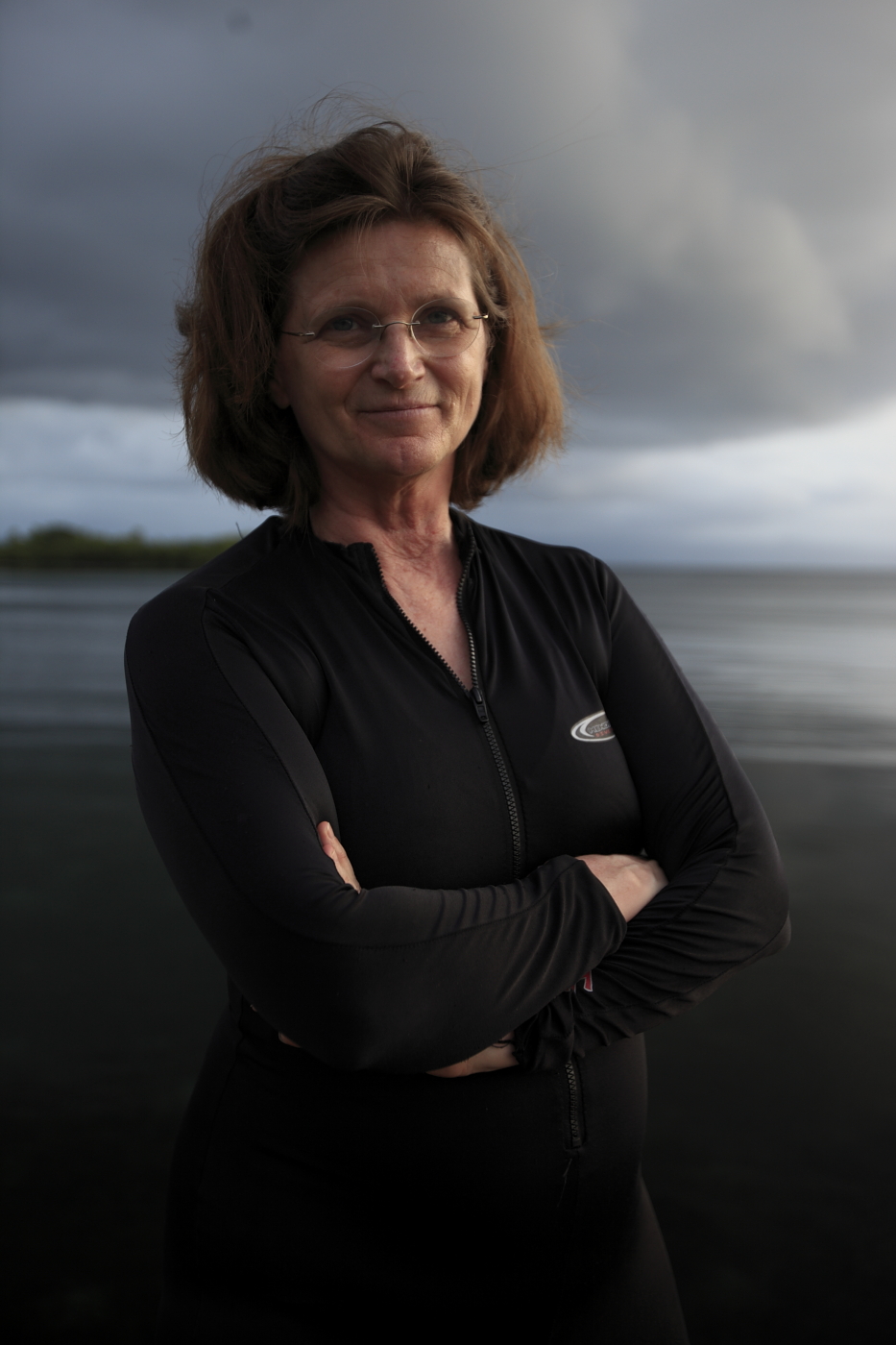2017
Amato, A., Dell’Aquila, G., Musacchia, F., Annunziata, R., Ugarte, A., Maillet, N., Carbone, A., Ribera D’Alcalà, M., Sanges, R., Iudicone, D., Ferrante, M. I. (2017). Marine diatoms change their gene expression profile when exposed to microscale turbulence under nutrient replete conditions. Scientific Reports, 7(1), 3826.
Annona, G., Caccavale, F., Pascual-Anaya, J., Kuratani, S., De Luca, P., Palumbo, A., & D’aniello, S. (2017). Nitric Oxide regulates mouth development in amphioxus. Scientific Reports, 7(1), 8432.
Baldascino, E., Di Cristina, G., Tedesco, P., Hobbs, C., Shaw, T., Ponte, G. & Andrews, P.L.R. (2017). The gastric ganglion of Octopus vulgaris: Preliminary characterization of gene-and putative neurochemical-complexity, and the effect of Aggregata octopiana digestive tract infection on gene expression. Frontiers in Physiology, 8, p.1001.
Basu, S., Patil, S., Mapleson, D., Russo, M. T., Vitale, L., Fevola, C., Maumus, F., Casotti, R., Mock, T., Caccamo, M., Montresor, M., Sanges, R., Ferrante, M.I. (2017). Finding a partner in the ocean: molecular and evolutionary bases of the response to sexual cues in a planktonic diatom. New Phytologist, 215(1), 140-156
Bettencourt, R., Barros, I., Martins, E., Martins, I., Cerqueira, T., Colaço, A., Costa, V., Rosa, D., Froufe, H., Egas, C., Stefanni, S., Dando, P., Santos, R.S. (2017). An Insightful Model to Study Innate Immunity and Stress Response in Deep‐Sea Vent Animals: Profiling the Mussel Bathymodiolus azoricus. In Organismal and Molecular Malacology, Sayal Ray, Ed. IntechOpen, DOI: 10.5772/68034
Boni, R., Gallo, A. & Cecchini, S. (2017). Kinetic activity, membrane mitochondrial potential, lipid peroxidation, intracellular pH and calcium of frozen/thawed bovine spermatozoa treated with metabolic enhancers. Andrology, 5(1), pp.133-145.
Burguera, D., Marquez, Y., Racioppi, C., Permanyer, J., Torres-Méndez, A., Esposito, R., Albuixech-Crespo, B., Fanlo, L., D’Agostino, Y., Gohr, A., Navas-Perez, E., Riesgo, A., Cuomo, C., Benvenuto, G., Christiaen, L.A.,Martí, E., D’Aniello, S., Spagnuolo, A., Ristoratore, F., Arnone, M.I., Garcia-Fernàndez, J., Irimia, M. (2017). Evolutionary recruitment of flexible Esrp-dependent splicing programs into diverse embryonic morphogenetic processes. Nature Communications, 8(1), 1799.
Carreiro-Silva, M., Ocaña, O., Stanković, D., Sampaio, Í., Porteiro, F. M., Fabri, M. C., & Stefanni, S. (2017). Zoantharians (Hexacorallia: Zoantharia) Associated with Cold-Water Corals in the Azores Region: New Species and Associations in the Deep Sea. Frontiers in Marine Science, 4, 88.
Catarino, D., Stanković, D., Menezes, G., & Stefanni, S. (2017). Insights into the genetic structure of the rabbitfish Chimaera monstrosa (Holocephali) across the Atlantic‐Mediterranean transition zone. Journal of Fish Biology, 91(4), 1109-1122.
Catarino, D., Stefanni, S., Jorde, P. E., Menezes, G. M., Neat, F., & Knutsen, H. (2017). The role of the Strait of Gibraltar in shaping the genetic structure of the Mediterranean Grenadier, Coryphaenoides mediterraneus, between the Atlantic and Mediterranean Sea. PloS ONE, 12(5), e0174988.
Costantini, M., & Musto, H. (2017). The isochores as a fundamental level of genome structure and organization: a general overview. Journal of Molecular Evolution, 84(2-3), 93-103.
Costantini, S., Guerriero, E., Teta, R., Capone, F., Caso, A., Sorice, A., Romano, G., Ianora, A., Ruocco, N., Budillon, A., Costantino, V., Costantini, M. (2017). Evaluating the Effects of an Organic Extract from the Mediterranean Sponge Geodia cydonium on Human Breast Cancer Cell Lines. International Journal of Molecular Sciences, 18(10), 2112.
Credendino, S. C., Lewin, N., de Oliveira, M., Basu, S., D’Andrea, B., Amendola, E., Di Guida, L., Nardone, A., Sanges, R., De Felice, M., De Vita, G. (2017). Tissue-and Cell Type-Specific Expression of the Long Noncoding RNA Klhl14-AS in Mouse. International Journal of Genomics, 2017.
D’Agostino, Y., & D’aniello, S. (2017). Molecular basis, applications and challenges of CRISPR/Cas9: a continuously evolving tool for genome editing. Briefings in Functional Genomics, elw038.
Entrambasaguas, L., Jahnke, M., Biffali, E., Borra, M., Sanges, R., Marín-Guirao, L., & Procaccini, G. (2017). Tissue-specific transcriptomic profiling provides new insights into the reproductive ecology and biology of the iconic seagrass species Posidonia oceanica. Marine Genomics, 35, 51-61.
Esposito, R., Yasuo, H., Sirour, C., Palladino, A., Spagnuolo, A., & Hudson, C. (2017). Patterning of brain precursors in ascidian embryos. Development, 144(2), 258-264.
Figuerola, B., Angulo-Preckler, C., Núñez-Pons, L., Moles, J., Sala-Comorera, L., García-Aljaro, C., Blanch, A.R., Avila, C. (2017). Experimental evidence of chemical defence mechanisms in Antarctic bryozoans. Marine Environmental Research, 129, 68-75.
Gomes-Pereira, J. N., Carmo, V., Catarino, D., Jakobsen, J., Alvarez, H., Aguilar, R., Hart, J., Giacomello, E., Menezes, G., Stefanni, S., Colaço, A., Morato, T., Santos, R.S., Tempera, F., & Porteiro, F. (2017). Cold-water corals and large hydrozoans provide essential fish habitat for Lappanella fasciata and Benthocometes robustus. Deep Sea Research Part II: Topical Studies in Oceanography, 145, 33-48.
Guida, F., Luongo, L., Boccella, S., Giordano, M. E., Romano, R., Bellini, G., Manzo, I., Furiano, A., Rizzo, A., Imperatore, R., Iannotti, F.A., D’Aniello, E., Piscitelli, F., Rossi, F., Cristino, L., Di Marzo, V., De Novellis, V., Maione, S. (2017). Palmitoylethanolamide induces microglia changes associated with increased migration and phagocytic activity: involvement of the CB2 receptor. Scientific Reports, 7(1), 375.
Imperadore, P., Shah, S. B., Makarenkova, H. P., Fiorito, G. (2017). Nerve degeneration and regeneration in the cephalopod mollusc Octopus vulgaris: the case of the pallial nerve. Scientific reports, 7, 46564.
Josef, N., Berenshtein, I., Rousseau, M., Scata, G., Fiorito, G., & Shashar, N. (2017). Size Matters: Observed and Modeled Camouflage Response of European Cuttlefish (Sepia officinalis) to Different Substrate Patch Sizes during Movement. Frontiers in physiology, 7, 671.
Kumar, A., AbdElgawad, H., Castellano, I., Lorenti, M., Delledonne, M., Beemster, G. T., Asard, H., Buia, M. C. , Palumbo, A. (2017). Physiological and biochemical analyses shed light on the response of Sargassum vulgare to ocean acidification at different time scales. Frontiers in Plant Science, 8, 570.
Kumar, A., Castellano, I., Patti, F.P., Delledonne, M., Abdelgawad, H., Beemster, G.T., Asard, H., Palumbo, A., Buia, M.C. (2017). Molecular response of Sargassum vulgare to acidification at volcanic CO2 vents: insights from de novo transcriptomic analysis. Molecular Ecology, 26(8), 2276-2290.
Lowe, E.K., Cuomo, C., & Arnone, M.I. (2017). Omics approaches to study gene regulatory networks for development in echinoderms. Briefings in functional genomics, 16(5), 299-308.
Lowe, E.K., Garm, A., Ullrich-Luter, E., & Arnone, M.I. (2017). The crowns have eyes: Multiple opsins found in the eyes of the Crown-of-Thorns Starfish Acanthaster planci. bioRxiv, 173187.
Marini, G., De Sio, F., Ponte, G., & Fiorito, G. (2017). Behavioral Analysis of Learning and Memory in Cephalopods. In: Menzel, R. (ed.), Learning Theory and Behavior, Vol. 1 of Learning and Memory: A Comprehensive Reference, 2nd edition, Byrne, J.H. (ed.). pp. 441–462. Oxford: Academic Press.
Mascolo, C., Ceruso, M., Sordino, P., Palma, G., Anastasio, A., & Pepe, T. (2017). Development of a method to extract and amplify the complete mitogenome of some Sparidae species. Italian Journal of Food Dafety, 6(2).
Russo, M., Milito, A., Spagnuolo, C., Carbone, V., Rosén, A., Minasi, P., Lauria, F. & Russo, G.L. (2017). CK2 and PI3K are direct molecular targets of quercetin in chronic lymphocytic leukaemia. Oncotarget, 8(26), p.42571.
Mock, T., Otillar, R.P., Strauss, J., McMullan, M., Paajanen, P., Schmutz, J., Salamov, A., Sanges, R., Toseland, A., Ward, B.J.,Allen, A.E., Dupont, C.L Frickenhaus, S., Maumus, F., Veluchamy, A., Taoyang Wu, Barry, K.W., Falciatore, A., Ferrante, M.I., Fortunato, A.E., Glöckner, G., Gruber, A., Hipkin, R., Janech, M.G., Kroth, P.G., Leese, F., Lindquist, E.A., Lyon, B.R., Martin, J., Mayer, C., Parker, M., Quesneville, H., Raymond, J.A., Uhlig, C., Valas, R.E., Valentin, K.U., Worden, A.Z., Armbrust, E.V., Clark, M.D., Bowler, C., Green, B.R., Moulton, V., Oosterhout, C.V., & Grigoriev I.V. (2017). Evolutionary genomics of the cold-adapted diatom Fragilariopsis cylindrus. Nature, 541(7638), 536.
Musacchia, F., Vasilev, F., Borra, M., Biffali, E., Sanges, R., Santella, L., & Chun, J.T. (2017). De novo assembly of a transcriptome from the eggs and early embryos of Astropecten aranciacus. PloS ONE, 12(9), e0184090.
Nanjappa, D., Sanges, R., Ferrante, M. I., & Zingone, A. (2017). Diatom flagellar genes and their expression during sexual reproduction in Leptocylindrus danicus. BMC Genomics, 18(1), 813.
Núñez-Pons, L., Bertocci, I., & Baghdasarian, G. (2017). Symbiont dynamics during thermal acclimation using cnidarian-dinoflagellate model holobionts. Marine Environmental Research, 130, 303-314.
Núñes Pons, L., Calcinai, B. & Gates, R.D. (2017). Who’s there?–First morphological and DNA barcoding catalogue of the shallow Hawai’ian sponge fauna. PloS ONE, 12(12), e0189357.
Oral, R., Pagano, G., Siciliano, A., Gravina, M., Palumbo, A., Castellano, I., Migliaccio, O., Thomas, P.J., Guida, M., Tommasi, F. & Trifuoggi, M. (2017). Heavy rare earth elements affect early life stages in Paracentrotus lividus and Arbacia lixula sea urchins. Environmental Research 154, 240-246.
Pagano, G., Guida, M., Trifuoggi, M., Thomas, P., Palumbo, A., Romano, G., & Oral, R. (2017). Sea urchin bioassays in toxicity testing: I. Inorganics, organics, complex mixtures and natural products. Expert Opin Environ Biol, 6, 1, 2.
Pagano, G., Thomas, P., Guida, M., Palumbo, A., Romano, G., Oral, R., Trifuoggi, M. (2017). Sea Urchin Bioassays in Toxicity Testing: II. Sediment Evaluation. Expert Opin Environ Biol, 6 (1), DOI: doi: 10.4172/2325-9655.1000141
Ponte, G. & Modica, M.V. (2017). Salivary Glands in Predatory Mollusks: Evolutionary Considerations. Frontiers in Physiology, 8, 580.
Ponte, G., Sykes, A.V., Cooke, G.M., Almansa, E. & Andrews, P.L.R. (2017). The digestive tract of cephalopods: toward non-invasive in vivo monitoring of its physiology. Frontiers in Physiology, 8, p.403.
Racioppi, C., Valoroso, M. C., Coppola, U., Lowe, E. K., Brown, C. T., Swalla, B. J., Christiaen, L., Stolfi, A. & Ristoratore, F. (2017). Evolutionary loss of melanogenesis in the tunicate Molgula occulta. EvoDevo, 8(1), 11.
Richa, K., Balestra, C., Piredda, R., Benes, V., Borra, M., Passarelli, A., Margiotta, F., Saggiomo, M., Biffali, E., Sanges, R., Scanlan, D.J., Casotti, R. (2017). Distribution, community composition, and potential metabolic activity of bacterioplankton in an urbanized Mediterranean Sea coastal zone. Applied and Environmental Microbiology, 83(17), e00494-17.
Romano, G., Costantini, M., Sansone, C., Lauritano, C., Ruocco, N., & Ianora, A. (2017). Marine microorganisms as a promising and sustainable source of bioactive molecules. Marine Environmental Research, 128, 58-69.
Ruocco, M., Musacchia, F., Olivé, I., Costa, M. M., Barrote, I., Santos, R., Sanges, R., Procaccini, G., & Silva, J. (2017). Genome‐wide transcriptional reprogramming in the seagrass Cymodocea nodosa under experimental ocean acidification. Molecular Ecology, 26, 4241-4259
Ruocco, N., Costantini, S., Palumbo, F., & Costantini, M. (2017). Marine Sponges and Bacteria as Challenging Sources of Enzyme Inhibitors for Pharmacological Applications. Marine Drugs, 15(6), 173.
Ruocco, N., Costantini, S., Zupo, V., Romano, G., Ianora, A., Fontana, A., & Costantini, M. (2017). High-quality RNA extraction from the sea urchin Paracentrotus lividus embryos. PloS one, 12(2), e0172171.
Ruocco, N., Fedele, A. M., Costantini, S., Romano, G., Ianora, A., & Costantini, M. (2017). New inter-correlated genes targeted by diatom-derived polyunsaturated aldehydes in the sea urchin Paracentrotus lividus. Ecotoxicology and environmental safety, 142, 355-362.
Rusolo, F., Capone, F., Pasquale, R., Angiolillo, A., Colonna, G., Castello, G., Costantini, M., Costantini, S. (2017). Comparison of the seleno-transcriptome expression between human non-cancerous mammary epithelial cells and two human breast cancer cell lines. Oncology Letters, 13(4), 2411-2417.
Sykes, A.V., Almansa, E., Cooke, G.M., Ponte, G. & Andrews, P.L.R. (2017). The Digestive Tract of Cephalopods: a Neglected Topic of Relevance to Animal Welfare in the Laboratory and Aquaculture. Frontiers in Physiology, 8, p.492.
Tammaro, S., Simoniello, P., Ristoratore, F., Coppola, U., Scudiero, R., & Motta, C.M. (2017). Expression of caspase 3 in ovarian follicle cells of the lizard Podarcis sicula. Cell and Tissue Research, 367(2), 397-404.
Tarallo, A., D'Onofrio, G., & Agnisola, C. (2017). Oxygen consumption rate in Gasterosteus aculeatus-Schistocephalus solidus system from a non-migratory naturally infected population. bioRxiv, 111112.
Tedesco, P., Gestal, C., Begić, K., Mladineo, I., Castellanos-Martinez, S., Catanese, G., Terlizzi, A., Fiorito, G. (2017). Morphological and molecular characterization of Aggregata spp. frenzel 1885 (Apicomplexa: Aggregatidae) in Octopus vulgaris Cuvier 1797 (Mollusca: Cephalopoda) from central mediterranean. Protist, 168(5), 636-648.
Tosti, E., Boni, R., & Gallo, A. (2017). µ-Conotoxins Modulating Sodium Currents in Pain Perception and Transmission: A Therapeutic Potential. Marine Drugs, 15(10), 295.
Trifuoggi, M., Pagano, G., Guida, M., Palumbo, A., Siciliano, A., Gravina, M., Lyons, D.M., Burić, P., Levak, M., Thomas, P.J., Giarra, A., Oral, R. (2017). Comparative toxicity of seven rare earth elements in sea urchin early life stages. Environmental Science and Pollution Research, 24(25), 20803-20810.
Ventola, G. M., Noviello, T. M., D’Aniello, S., Spagnuolo, A., Ceccarelli, M., & Cerulo, L. (2017). Identification of long non-coding transcripts with feature selection: a comparative study. BMC bioinformatics, 18(1), 187.
Villanueva, R., Perricone, V., & Fiorito, G. (2017). Cephalopods as predators: a short journey among behavioral flexibilities, adaptions, and feeding habits. Frontiers in Physiology, 8, 598.
 I Servizi Tecnici assicurano lo svolgimento delle attività tecniche indispensabili al funzionamento delle diverse strutture dell’Ente. I Servizi Tecnici attualmente svolgono le seguenti funzioni:
I Servizi Tecnici assicurano lo svolgimento delle attività tecniche indispensabili al funzionamento delle diverse strutture dell’Ente. I Servizi Tecnici attualmente svolgono le seguenti funzioni:
a) gestione tecnica dei servizi di comunicazione inclusi gli strumenti informatici e di telefonia che garantiscono le relazioni esterne dell’Ente;
b) supporto logistico, tecnico ed operativo al Responsabile del Servizio di Prevenzione e Protezione, sotto il coordinamento del Responsabile della Sicurezza (Rappresentante Legale; ai sensi del D.Lgs. 81 del 9 aprile 2008 e s.m.i.);
c) gestione degli immobili, strumentazioni e beni di diversa natura e lo manutenzione ordinaria e straordinaria;
d) gestione della manutenzione ordinaria e straordinaria delle apparecchiature scientifiche in collaborazione con gli affidatari delle stesse.
Occupational health and safety
Sede Napoli
• Vincenzo Femiano (RSPP)
Building and Equipments maintenance
Sede Napoli
• Raffaele Trimarco (Responsabile)
• Aldo De Rosa
• Danilo Iacone
• Ida Lavorgna
• Antonio Pedone
• Violante Stefanino
In this section you can find news and updates on the activities of SZN and a complete overview of events, seminars and courses.
 Ferdinando Boero
Ferdinando Boero
Dipartimento di Scienze e Tecnologie Biologiche e Ambientali
Università del Salento
Lecce - Italia
 Roberto Bassi
Roberto Bassi
Biochimica e Fisiologia Vegetale
Dipartimento di Biotecnologie
Università di Verona
Tim Hunt
Francis Crick Institute
Cancer Research UK Clare Hall Laboratories
South Mimms, England
Curriculum Vitae
 Nancy Knowlton
Nancy Knowlton
Sant Chair in Marine Science
Smithsonian’s National Museum of Natural History
Washington, DC
USA
 Axel Meyer
Axel Meyer
Chair in Zoology and Evolutionary Biology
Department of Biology
University of Konstanz
Germany
Stephen Palumbi
Hopkins Marine Station
Dept. Biological Sciences
Pacific Grove, CA
USA
Curriculum Vitae
 Stefano Schiaffino
Stefano Schiaffino
Istituto Veneto di Medicina Molecolare
Padova - Italia
Secretary
Margherita Groeben
Tel. +39 081 5833310
Fax +39 081 7641355
E-mail: margherita.groeben(at)szn.it
The CUG-SZN, established in December 2011, was renewed in March 2024 for the four-year period 2024-2028. The Committee has an equal composition and is currently made up of eight members designated by the most representative trade union organizations and eight representatives of the Administration, appointed by the President based on electoral consultations, ensuring overall equal representation of both genders.Appointment of the Committee:
1) Decreto del Presidente n. 20/2024 del 08/03/2024 (In Italian)
| Members | Substitute members | Role |
| Francesca Margiotta | Mariapia Ciampa | President |
| Valeria Contino | Chiara Coppola | Member |
| Chiara Svampa | Vincenzo Signore | Member |
| Francesco Manfellotto | Carmen Minucci | Member |
| Mara Francone | Ylenia Carotenuto | FLC CGIL designation member |
| Alessandra Gallo | Davide Caramiello | FIR CISL designation member |
| Fulvio Maffucci | Raffaella Casotti | FGU-DR designation member |
| Clementina Sansone | Christophe Brunet | ANIEF designation member |










